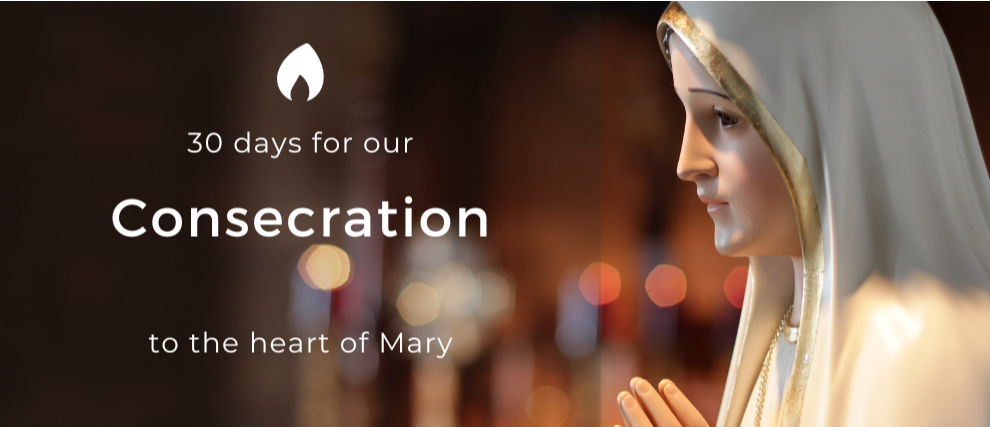Pauline Jaricot
“I am made to love and act. My cloister is the world.”
Pauline Jaricot, a 19th century Lyon entrepreneur, put her energy, her creativity, and her social and missionary sensitivity at the service of Christ. This laywoman, at the origin of the Society for the Propagation of the Faith and the Living Rosary, was beatified on May 22, 2022. Discover the life and work of Blessed Pauline Jaricot!
Biography of Pauline Jaricot
Marie-Pauline Jaricot was born in Lyon on May 22, 1799, the seventh of a loving and pious family. Her father owned a silk workshop, thanks to which he became part of the Lyon bourgeoisie, and his family lived comfortably. Born during the French Revolution, Pauline went to masses in secret with the refractory priests. The parish priest of Ars, a vicar not far from the house of the Jaricots, became Pauline's great friend. As children, Pauline and her brother Philéas dreamed of missionary life, Philéas as a priest (indeed he would become one) and Pauline accompanying him. Up to 17th birthday, Pauline led a frivolous life, living in a beautiful world and taking part in every ball. This worldly life suddenly ceased when, falling from a ladder, she injured her spine. During her long recovery, Pauline lost her mother. This series of trials lead the girl to reflect on the meaning of life. Following the shocking sermon of a priest, Pauline changed her life, abandoned her jewelery and cosmetics, dressed as a worker, and chose a very simple life. In the chapel of the Virgin at Fourvière, Pauline made a vow of perpetual chastity and gave her life to God, while remaining outside the clergy.
In her father's workshop, Pauline got to know the canuts (silk workers), and their precarious living conditions upset her, so she undertook reforms. Drawing strength from prayer and the Eucharist, she practised a very social Catholicism, continually helping the poor in many ways. Alerted by the critical situation of the missionary activity of the Church, she decided to make it known to her contemporaries, and recounted the lives of priests leaving to evangelize distant lands at the risk of their lives. Pauline wanted to offer material and spiritual assistance to the missionaries, and she devised a way to raise funds for the missions and created the Society of the Propagation of the Faith in 1822. To encourage the faith of her contemporaries, Pauline set up the Association of the Living Rosary in 1826. In 1835, Pauline, still sick, went on a pilgrimage to Mugnano (Italy) to ask for the intercession of Saint Philomena. She returned cured and had a chapel built in honor of the saint.
Pauline felt concerned about the social problems of her time, and full of enthusiasm, she continued to act. She wanted to create a model of working life worthy and united with God. In 1845, she bought a factory and built a school and a chapel. Unfortunately, her project failed because of dishonest people swallowing up all her fortune. Pauline began a long path to repay her debts. In 1861, Pauline, suffering from a heart condition, saw her condition worsen, and she clung to God alone. She died in Lyon on January 9, 1862 in utter destitution, and the works she founded already shone all over the world.
Works of Pauline Jaricot
Pauline Jaricot was a woman full of initiative. She was at the origin of several large-scale works that she established in the spiritual, social and missionary fields.
- The Society of the Propagation of the Faith was born out of the need to raise funds for missionaries. Originally called “Pauline's penny”, the project consisted of collecting one penny per person. Each participant undertakes to pray for an intention and to form a group of ten. This system spread rapidly throughout the world and became the Society of the Propagation of the Faith, officially founded on May 3rd, 1822. In 1922, it was elevated to the status of a pontifical work and its seat transferred to Rome.
- The Work of the Living Rosary was born in 1826. The principle is simple: each person meditates on one of the 15 mysteries of the rosary, and 15 people form an entire rosary. At the time of Pauline’s death, there were more than 2 million associates of the Living Rosary, and this chain of prayer still exists today.
- The founding of the Rustrel factory in 1845 was a work of social commitment intended to offer a dignified Christian working life. Unfortunately, due to dishonest individuals, the project ended in failure.
- The Daughters of Mary, founded in 1832, are a community of pious girls. Pauline set them up on Fourvière Hill in a house she called Lorette, a famous Marian pilgrimage site. This place still welcomes pilgrims and visitors from all over the world.
- Today, Pauline Jaricot's work continues with the Pontifical Mission Societies.
Beatification of Pauline Jaricot
On May 26th, 2020, Pope Francis recognized the miracle attributed to Venerable Pauline Jaricot and announced her upcoming beatification in Lyon on May 22nd, 2022.
The cause of Pauline Jaricot's beatification was opened in 1926 by Pope Pius XI, who paid tribute to her missionary genius. In 1963, John XXIII recognized the heroic virtues of Pauline Jaricot, paving the way for future beatification.
To proclaim canonization and declare Pauline Jaricot holy, the Church must now recognize a second miracle attributed to her intercession.

